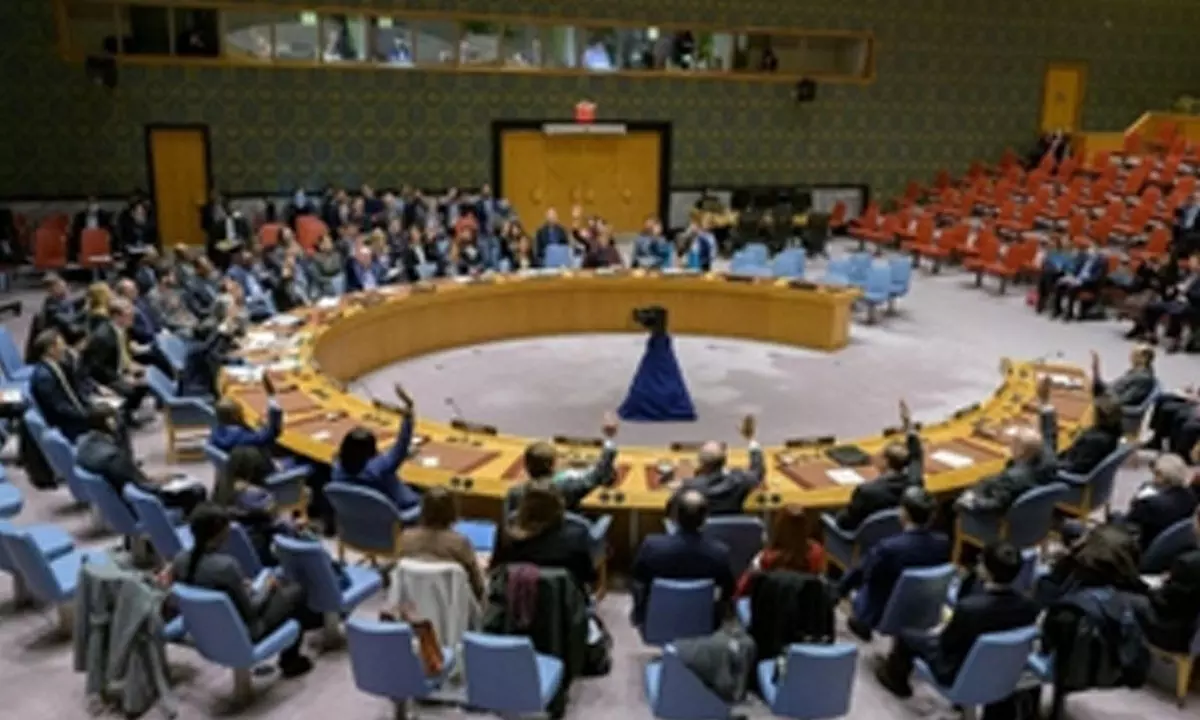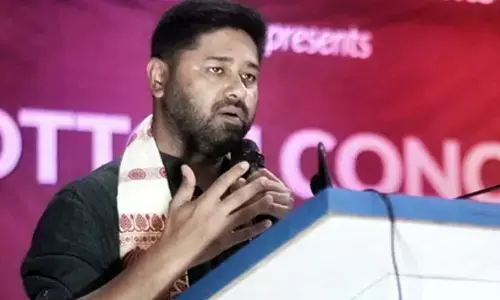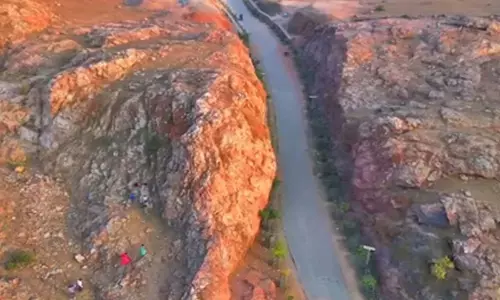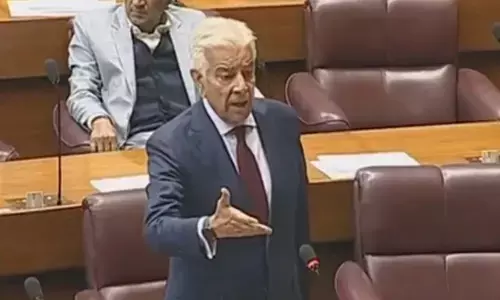UNSC Gaza resolution merely symbolic; UN relief efforts hit by setback
Share :

It took 46 days for the UN Security Council to call for a humanitarian pause in the Israel-Hamas conflict that has claimed over 12,000 lives, most of them civilians, many of them children, but in a resolution without teeth.
United Nations: It took 46 days for the UN Security Council to call for a humanitarian pause in the Israel-Hamas conflict that has claimed over 12,000 lives, most of them civilians, many of them children, but in a resolution without teeth.
A day later on Thursday, a UN effort with real-life implications for the people of Gaza was undone when the relief supplies it was sending to Gaza through the Rafah border crossing from Egypt after days of intense diplomacy came to a halt as it ran out of fuel and because of a communication shutdown.
Although the resolution represented a hard-won victory for the Council members wanting to signal themworld that the paralysed body had finally moved to act, it was merely symbolic – a pathetic plea – despite the Council having enforcement powers.
The resolution carried no threats of penalties – and even if it had, it would be impossible to enforce them given the reluctance of the US in agreeing to a call for a pause in the fighting.
The US, which had vetoed an earlier resolution on Gaza, agreed to let this one pass by abstaining from voting even though it did not meet its demand for a condemnation of Hamas, which started it all with a horrendous attack of Israel on October 7, or an affirmation of Israel’s right to self-defence.
About 1,200 people had been killed in Israel – many of them children – and about 240 people, including kids, had been taken hostage.
In Israel’s retaliation, which started with aerial bombardment and was joined later by a ground invasion, some 11,078 people have been killed in the Hamas-controlled enclave, according to the Palestinian Health Ministry in Gaza.
What had changed in the 28 days since the US veto was the ferocity of Israel’s counterattack, the tide of international opinion reflected in the 121 votes that a General Assembly resolution demanding a humanitarian truce received, and growing demands across the US for a ceasefire.
Russia, which had been isolated because of its invasion of Ukraine and under constant criticism for 21 months since, was taking advantage of the sentiments directed against the US over Gaza.
President Joe Biden’s administration took notice and decided to allow the Council resolution to pass, also knowing fully well that it has no teeth, disregarding Israel’s total opposition to any stopping in the fighting.
Britain also sat out the vote with the US rather than veto it – or support it.
While the membership-driven side of the UN – the Assembly and the Council – may appear to be all talk, the action of the UN as an institution is on its flag which fluttered at the headquarters campus at half-mast honouring the more than 100 of its relief workers killed in Gaza from the Israeli attacks.
Gaza is an impoverished strip with few natural resources where 2.2 million people are crammed into 362 square kilometres.
About 13,000 workers of the UN Relief and Works Agency (UNRWA), the largest UN humanitarian organisation, work in Gaza providing everything from food and medicine to schools.
Gaza depends on food, water and fuel coming in from outside. It needs electricity from elsewhere and fuel to operate the desalination plants that provide water.
The Israeli counterattack shut down avenues for the crucial supplies to come in.
Secretary-General Antonio Guterres launched a relentless campaign to get at least one of the border crossings open to avert a hunger crisis there, going right up to the Rafah crossing to make his point, while convoys of trucks loaded with relief supplies idled.
Finally on October 21, Israel under US pressure allowed a limited number of vehicles – far below the actual requirements – to cross over.
But Israel did not allow fuel to be sent to Gaza fearing that it could be hijacked by Hamas and used for its attacks on Israel.
And because of that the relief operations came to a halt on Thursday.
Within Gaza, UNRWA says it has run out of fuel for the vehicles and machinery to distribute the relief.
The telecommunications operators in Gaza have run out of fuel to power their equipment and shut them down.
The operations at the Rafah crossing ground to a halt because there could be no cross-border communications for logistics.
Against this backdrop, the Assembly met on Friday to hear briefings on the scale of devastation in Gaza from eight senior officials of the UN and its agencies covering health, food, human rights, development and women’s and children’s issues.
UN High Commissioner for Human Rights Volker Türk said: “A conflagration of violence has been unleashed in the Occupied Palestinian Territory – both in Gaza and the West Bank – as well as in Israel.
“One in every 57 people living in the Gaza Strip has been killed or wounded in the past five weeks. The killing of civilians is not acceptable collateral damage.
"It is not and must never become a deliberate weapon of war. Not in a refugee camp. Not in a kibbutz. And not in a hospital. Not anywhere”.
Under-Secretary-General for Humanitarian Affairs Martin Griffiths said: “In many respects, international humanitarian law appears to have been turned on its head”.
With the fighting now in and around the Shifa Hospital, he said that under international humanitarian law, “hospitals have specific protection”.
In a warning directed at Hamas, he said: “This means they must not be used to shield military objectives from attack."
And for Israel, he said: “It also means that even if hospitals lose their protection, warnings and other precautions must be implemented to avoid civilian harm, and, of course, disproportionate attacks are strictly prohibited."
“Nearly 240 hostages, from babies to octogenarians, face their 41st day of captivity. They must be released immediately and without condition” and meanwhile they should be allowed visits from the International Red Cross.
tHE World Health Organization’s Director-General Tedros Adhanom Ghebreyesus said: “There are no words to describe the horror. Premature babies dying as life-support systems shut down; more than 2,000 patients with cancer, 1,000 with kidney disease, 50,000 with cardiovascular disease and 60,000 with diabetes, all at risk as their treatment is interrupted."







